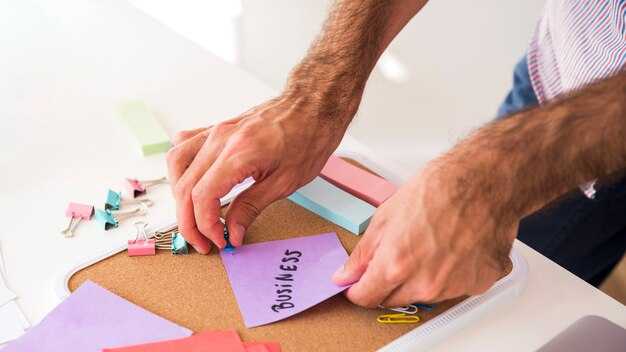Start with one concrete responsibility for 30 days: assign him ownership of the weekly meal plan and grocery budget, set three measurable targets (menu variety: 5 unique dinners/month; waste reduction: under 8% of groceries; spending variance: ±10% of baseline), and hold a 10-minute Friday check-in. Small, repeatable wins like this build visible leadership without overloading other household systems; tracking results with a simple spreadsheet is helpful and reduces ambiguity when tasks get hard.
When emotional episodes occur–if you notice crying or withdrawal–choose presence over problem-solving: sit closely, mirror one sentence of what he says, then move to acknowledging the immediate facts. For example, say, “It sounds like the promotion didn’t come through,” instead of vague consolation. That specific approach can bring calm to fresh wounds and prevents leaving uncertainty to fester; the clear takeaway is validation first, plan second. Many people desperately want signals that someone knows the scale of an issue before suggestions follow.
Everyone knows public recognition matters: raul suggests a shared whiteboard in the kitchen that lists three recent contributions and one upcoming task, visible to the entire room. Rotate the names weekly so no single person monopolizes praise and avoid treating small gestures as mere chores; instead, treat them as evidence of skill. This creates a measurable view of contribution, reduces the “invisible work” problem, and makes true appreciation routine rather than occasional. When feedback is specific, closely timed, and mentions what the action enabled for other people, it has the strongest effect.
Tell Him the Things That Make You Happy
Name three concrete actions that bring you joy and tell him them now: the sight of shared silence after dinner, a quick hug when he walks through the door, and late-night conversations that stay on one topic for at least 20 minutes.
Acknowledge specifics rather than adjectives: say “I enjoy when you brew coffee in the kitchen” instead of “I like it when you help.” Keep a written list in your phone and send a short text with one item once per week; written, heartfelt notes left on the bedroom nightstand work well for high-impact reminders.
During group settings, publicly acknowledge one thing he did that day you adore – thank him in front of friends or families for fixing the sink or calling the provider about insurance – to reinforce behavior without performance pressure. Unlike broad praise, specific examples are remembered and repeated.
If he has early-career or health struggles (for example, time in inpatient care or relocation from Colorado), include recognition of those milestones in conversations; say “I admire how you handled X” and avoid minimising. Offer to include support steps like scheduling appointments with providers or joining a family check-in when needed.
Build small rituals that never demand theatrical effort: a five-minute recap before bed, a quick text midday that names one thing you enjoy, and a no-slamming-door rule after arguments. These routines create stability that feels genuine and is more valuable than rare grand gestures.
Give three concrete examples of actions that brighten your day
-
Send a 15–20 second voice note at your partner’s usual wake time (example: 7:15). Include three micro-elements: one specific compliment (“You handled that call calmly”), one practical cue (“wear the navy shirt today”), and one simple plan (“coffee after work?”). Attach a single photo from a recent good moment (photo attached). Suggested exact words to record verbally: “Good morning – I enjoyed last night; you were steady during that raging deadline. Coffee 6:30?” Behavioral tip: use this pattern 3 mornings per week; people report a measurable impact within 10–14 days as checking of devices drops and attention shifts into present interactions.
-
Perform a one-off, clearly helpful errand on a heavy work-life day to reduce friction: check his calendar at 11:45, order lunch through the app you both used before, pre-pay, and drop it off at 12:25 without announcing yourself. Steps to include: confirm the right delivery spot, text “Dropping lunch 12:25” so he isn’t interrupted, leave if a meeting is raging. This concrete support is faster to register than abstract compliments; many boyfriends and partners say it enhances trust. If he says it’s difficult to accept help, state one short sentence verbally about intent (no long sentiments): “I want to support you, not take over.”
-
Plan a 90-minute micro-date tailored and time-boxed: pick a specific place (example: Red Rocks, Colorado), set exact times (5:00–6:30 PM), pack his favorite snack and a lightweight layer he likes to wear, and arrive five minutes early. Send the invite 24 hours ahead with one clear option: “Free tomorrow 5–6:30? Short hike + sandwich.” Bring one small memento–polaroid or a ticket stub–attached to the moment and say one honest word about what you enjoyed: “I enjoyed our talk at the creek; it grows my appreciation.” This unique, low-pressure ritual enhances connection without heavy sentiments and surely registers as thoughtful when repeated every 2–3 weeks.
Specify times and settings when compliments mean the most

Give a specific compliment within 30 minutes after your partner completes a concrete task: name the task, describe the quality you noticed, and state the observable effect on you or the household.
Private, immediate praise after completion works best for tasks tied to competence (repairs, paperwork, helping with kids). Public, brief praise is more potent for social achievements (work wins, team sports). For emotional moments choose a quiet, touch‑friendly setting such as cuddling on the couch or while walking hand in hand.
Use action-focused language: “When you fixed the leak, your steady approach saved us time” instead of vague labels. That directs attention to strengths and makes the compliment significant rather than generic.
Timing and setting table below with recommended wording and why each choice works:
| Setting | Best timing | Sample phrase |
|---|---|---|
| After a completed home project | Within 30–60 minutes, private | “Finishing the shelving today showed your attention to detail – it made the room calmer.” |
| Before leaving for work or a meeting | 5–10 minutes before, concise | “You read that brief so thoroughly; your clarity helped me trust the plan.” |
| During cuddling or intimate downtime | In the moment, low distraction | “I love how you listen so deep when I talk – that closeness matters.” |
| While walking together outside | Immediate, conversational | “Walking with you today felt easy; your calm makes stressful things smaller.” |
| At a significant relationship milestone (anniversary, marriage conversations) | Planned, heartfelt | “Our marriage is stronger because you show up – I’m lucky to have that steadiness.” |
| After emotional vulnerability or therapy session | Soon after session ends, private | “Going to therapy and sharing that was brave; your honesty is a real strength.” |
| When partner seems afraid or desperately seeking approval | Immediate, reassuring, private | “You’re not alone in this – your effort matters and is seen.” |
| In social settings (friends, family) | Short, specific, not competitive | “He handled that question with real poise – impressive.” (use only if partner prefers public praise) |
Match the compliment to the context: for practical help use measurable details (time saved, problem solved); for emotional labor use descriptors of feelings and care. Small gestures – a note, a text to mert after a milestone, or an extra cup of coffee – reinforce words.
When someone doesnt respond to praise, read their cues: some prefer reminders about progress (“You finished the application; that’s big”) rather than declarative praise. For boyfriends or a husband who downplay achievements, tie compliments to outcomes to make them tangible.
Avoid broad statements; replace “You’re great” with “Your patience while calming the kids kept bedtime on schedule.” That specificity increases perceived sincerity considerably and prevents the compliment from being gone in a minute.
Balance frequency: daily small acknowledgments for ongoing helping tasks, and deeper, sweeter reflections monthly for long-term strengths. If getting consistent praise is new, scaffold it with short coaching phrases that echo therapy language and basic psychology of reinforcement.
Verwenden Sie Ton und Berührung, um zu verstärken: Ein weicher Ton beim Kuscheln oder eine feste Hand auf der Schulter beim Gehen vermittelt das Gefühl über zwei Kanäle. Für Partner, die zuerst Handlungen lesen, kombinieren Sie Worte mit abgeschlossenen Gesten anstatt bloßer zusätzlicher Adjektive.
Weisen Sie auf die kleinen täglichen Gewohnheiten hin, die Ihre Stimmung spürbar heben.

Nennen Sie eine bestimmte Gewohnheit und nennen Sie deren Wirkung: „Wenn ich morgens um 7:00 Uhr 20 Minuten gehe, sinkt mein Stress und ich lächle mehr.“ Sagen Sie dies zweimal pro Woche für zwei Wochen, dann möglichst einmal täglich; fügen Sie eine einfache Metrik hinzu (z. B. „diese Woche 3× gelächelt”).
Verwenden Sie konkrete Sprache in einer kurzen Notiz oder einem Brief von 30–50 Wörtern: Listen Sie die Handlung, das beobachtbare Ergebnis und eine Bitte auf. Beispiel: "Du hast gestern Nacht die Decke über meine Füße gelegt – ich entspannte mich und schlief tiefer." Lesen Sie die Notiz laut in ruhiger Stimme vor oder legen Sie sie dort hin, wo jemand sie vor dem Schlafengehen lesen kann.
Weisen Sie auf Aktivitäten mit geringem Aufwand hin, die Gewicht haben: beim Abwasch helfen, den Kalender vor dem Schlafengehen überprüfen, eine Hand 10 Sekunden lang halten oder gemeinsam eine Seite eines Buches lesen. Quantifizieren Sie: 5 Minuten Helfen + 10 Sekunden Halten = messbare Freundlichkeit, die oft Spannungen reduziert, wenn jemand erschöpft ist.
Nutze kleine Rituale, um Dankbarkeit zu verankern: ein süßes "danke" vor dem Frühstück, ein schneller Kopf-Nick plus ein Lächeln oder ein 60-sekündiger Check-in um 21 Uhr. Lacht gemeinsam täglich über einen Witz; dieses kurze Lachen hebt die Stimmung zuverlässig, ohne übertriebenen Lob oder leeren Schmäh.
Geben Sie Feedback, das Kompetenz und Respekt würdigt: Nennen Sie die grundlegende Fähigkeit („Sie planen Routen gut“), sagen Sie, warum es wichtig war („da ich mir bei der Zeitplanung unsicher war, hat Ihre Karte Stress verhindert“), und schließen Sie mit explizitem Dank ab. Caroline hat dies ausprobiert: ein wöchentlicher Hinweis plus zwei verbale Erwähnungen pro Woche führten zu konsistenten Berichten darüber, sich respektiert und geschätzt zu fühlen.
Bitte um einen bestimmten Gefallen oder eine bestimmte Aufgabe, anstatt Andeutungen zu machen.
Einen bestimmten Gefallen erbitten: Nennen Sie genau die gewünschte Aufgabe, die Frist und das messbare Ergebnis, das Sie erwarten – beispielsweise, Bitte wechseln Sie am Samstag das Öl in dem Honda und ersetzen Sie den Filter; bewahren Sie den Beleg auf und sagen Sie mir Bescheid, wenn es erledigt ist.
Definieren Sie den Prozess mit sequenziellen Schritten und Materialien, die mit der Aufgabe zusammenhängen (Teile, Handbücher, Parkzeit). Verhaltensverständlichkeit reduziert Druck: Listen Sie die geschätzte Zeit (45–90 Minuten), benötigte Werkzeuge und ob die Aufgabe als einmalig oder als Teil der Vertiefung der Haushaltsverantwortlichkeiten gedacht ist auf.
Lob sollte beobachtetes Verhalten und Qualität widerspiegeln, anstatt Aussehen oder Herkunft. Verwenden Sie konkretes Feedback: "Der Rasen sieht eben aus; danke, dass Sie ihn so gründlich gemäht haben", anstatt vager Komplimente. Diese Spezifität erhöht das Gefühl, geschätzt zu werden, bringt oft ein echtes Lächeln hervor und macht eine Umsetzung wahrscheinlicher; verbinden Sie die Fertigstellung mit einem kleinen Vergnügen (Kaffee oder Dessert) für eine hervorragende Verstärkung.
Passe Zuweisungen an die aktuellen Arbeitsrhythmen an – wenn er Schichten im stationären Bereich oder andere Einschränkungen hat, teile die Aufgabe in kurze Abschnitte auf oder plane Wochenenden ein. Vielleicht kannst du Fristen mit Partnern aushandeln und dich um die administrative Nachverfolgung kümmern. Markiere erledigte Aufgaben in einer gemeinsamen Liste, damit der Punkt sichtbar bearbeitet wurde und es keine unerwünschten Überraschungen gibt.
Nach Abschluss eine kurze Rückmeldung geben: Fragen, ob das genau das war, was Sie erwartet haben. Korrekturen ohne zusätzlichen Druck annehmen und Anweisungen überarbeiten, wenn Verhaltensweisen auf einen anderen Ansatz hindeuten. Das gemeinsame Arbeiten für die ersten 10 Minuten kann Technik vermitteln, zukünftiges Verhalten verbessern und die Gesamtqualität steigern; Marriagecom-ähnliche Checklisten helfen Partnern, den Fortschritt zu verfolgen und eine echte Zusammenarbeit aufrechtzuerhalten.
Erklären Sie, wie Sie Ihre Wertschätzung zeigen werden, wenn er diese Dinge tut.
Nennen Sie genau das, was er getan hat, und das konkrete Ergebnis innerhalb einer Stunde: eine Nachricht oder sagen Sie: "Vielen Dank, dass Sie das Waschbecken wieder frei bekommen haben – die Küche blieb benutzbar und ich habe 20 Minuten gespart", damit er weiß, welche Handlungen Wert schaffen und welche klare Wirkung haben.
Schreibe einen kurzen, handgeschriebenen Zettel und stecke ihn in seine Jacke oder auf den Lenker, bevor er zur Arbeit geht; zum Beispiel: "Deine Geduld mit den Kindern heute Morgen hat das Auto ruhig gehalten." Dieses überraschende physische Signal färbt eine alltägliche Routine und wird zu einer eingebauten Erinnerung an Wertschätzung.
Nach einer Anstrengung, die mit seinen Leidenschaften verbunden ist – einem Prototyp, einer Runde oder einem Holzwerkstück – bereite sein Lieblingsessen zu und beschreibe eine spezifische hilfreiche Handlung: „Dein Schleifen glättete ein Brett um 30%, was das Regal stärker machte.“ Quantifiziere, wo möglich, um die Aussage zu verstärken.
Nutzen Sie die Acht-Sekunden-Regel: Nehmen Sie sich acht ununterbrochene Sekunden, um die Fähigkeit, das direkte Ergebnis und eine einzige Erkenntnis für den Haushalt zu benennen. Bleiben Sie konkret, vermeiden Sie vage Lobeshupfer und übertreiben Sie es nicht; zu häufige generische Komplimente verwässern die Bedeutung.
Wenn ein Projekt unvollständig ist oder der Weg zu einem Ergebnis ins Stocken gerät, weise auf Fortschritte hin und biete eine praktische Hilfe an: „Du hast die Wand verblendet; ich hänge heute Abend die Gipskartonplatten.“ Die Kombination aus verbaler Wertschätzung und dem Angebot, zu helfen, fördert die Fortsetzung und treibt den Schwung voran.
Geben Sie ein öffentliches Beispiel bei einer Mahlzeit mit Freunden oder Familie: Nennen Sie einen konkreten Fall, die spezifische Handlung und den messbaren Effekt, damit andere den Beitrag verstehen. Diese Idee der öffentlichen Anerkennung wird zum Beweis dafür, dass er Zuverlässigkeit aufgebaut hat, anstatt leere Worte zu äußern.
Führen Sie ein aktives Protokoll, in dem Sie wöchentlich drei Beiträge notieren; überprüfen Sie es monatlich und teilen Sie eine Top-Drei-Liste, damit Wertschätzung datengestützt ist. Diese Gewohnheit stärkt Muster hilfreichen Verhaltens und gibt Ihnen beiden ein greifbares Ergebnis, wenn Entscheidungen getroffen werden.


 15 Ways to Make a Man Feel Needed — Boost His Confidence">
15 Ways to Make a Man Feel Needed — Boost His Confidence">






 10 Dinge, die Männer von Frauen wollen, aber nicht fragen – Laut Psychologie">
10 Dinge, die Männer von Frauen wollen, aber nicht fragen – Laut Psychologie">
 Good Kid Interview – Verletzlichkeit, Gemeinschaft & Unabhängigkeit an der Wand">
Good Kid Interview – Verletzlichkeit, Gemeinschaft & Unabhängigkeit an der Wand">
 Warum Frauen nicht auf Frauen zugehen – 10 Gründe und wie Sie es ändern können">
Warum Frauen nicht auf Frauen zugehen – 10 Gründe und wie Sie es ändern können">
 Was zu tun ist, wenn es schwerfällt, einem neuen Partner zu vertrauen — 8 praktische Schritte">
Was zu tun ist, wenn es schwerfällt, einem neuen Partner zu vertrauen — 8 praktische Schritte">
 Dating-App-Umsatz und Nutzungsstatistiken 2025 | Markttrends, Benutzerwachstum & wichtige Daten">
Dating-App-Umsatz und Nutzungsstatistiken 2025 | Markttrends, Benutzerwachstum & wichtige Daten">